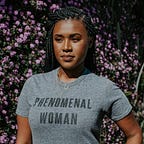The Democratic VP Candidate is an HBCU Grad. Here’s Why It Matters.
Kamala Harris is not just a Black Woman, but also a graduate of Howard University — a Historically Black University. Here’s why that’s a big deal.
Yesterday was a big day.
Not just because Joe Biden announced his running mate would be California Senator Kamala Harris, the first African American to be chosen as the running mate of a major party’s presidential candidate. This announcement also makes Harris the first graduate of a historically black college or university (HBCU) to become a nominee of the second highest office in the United States.
Like Senator Harris, I, too, attended schools with majority-White populations from elementary school through high school. When it came to college, I was determined to seek a collegiate experience that would give me an opportunity to be surrounded by peers who looked like me. For once, I wanted to feel what it felt like to be fully myself.
In the early 1980s, Senator Harris chose to attend Howard University in Washington, D.C.
In the early 2000s, I chose to attend Howard’s rival school, Hampton University in Hampton, VA.
My time at Hampton was crucial to my development. In addition to getting a degree in Broadcast Journalism, I learned so much about myself and fell in love with the privilege that it is to be a Black Woman. As a freshman, I entered college as a quiet, uncertain young woman from Southwest Ohio. As a graduating senior, I had become a confident Black Woman who had discovered her purpose. I found my drive and determination to carry on the legacy of my family and the incredible men and women who came before me. I’m not saying you can’t find this at other institutions, I’m simply saying that Hampton was where I found my “why”.
I know first-hand how people attempt to invalidate the education and experiences offered at HBCUs. And unfortunately, I’ve found that the loudest criticism often comes from melanated friends who attended PWIs (predominately white institutions). I’ve had “friends” tell me that while I chose to go to school to meet people who look like me, they chose to go to school to get a good education. (Spoiler alert: We’re no longer friends.)
There has even been a push by some policy makers and legislators to shut HBCUs down as they question the relevance of these institutions.
To the naysayers, here are some quick facts about HBCUs:
- According to the United Negro College Fund, HBCUs are responsible for 25% of all African American science, technology, engineering, and mathematics (STEM) degrees.
- Nine of the top ten colleges that graduate most of the African American students who go on to earn Ph.D.s are HBCUs.
- According to Black Enterprise, more than 50% of the nation’s African American public school teachers and 70% of African American dentists earned degrees at HBCUs.
- Over half of all African American professionals are graduates of HBCUs.
Having Harris on the presidential ticket further crushes the myth that HBCUs are offering a subpar education to Black students across the United States and should lay to rest any questions about the relevance of these institutions. Obama showed us in 2008 that our Black skin knows no bounds and Harris is carrying that baton, letting every Black young boy or girl around the world know that securing an education from an HBCU is a badge of honor that will take you far.
“That was the beauty of Howard. Every signal told students that we could be anything — that we were young, gifted, and black, and we shouldn’t let anything get in the way of our success.” — Kamala Harris to the Washington Post
This, my friends, is a big deal.
